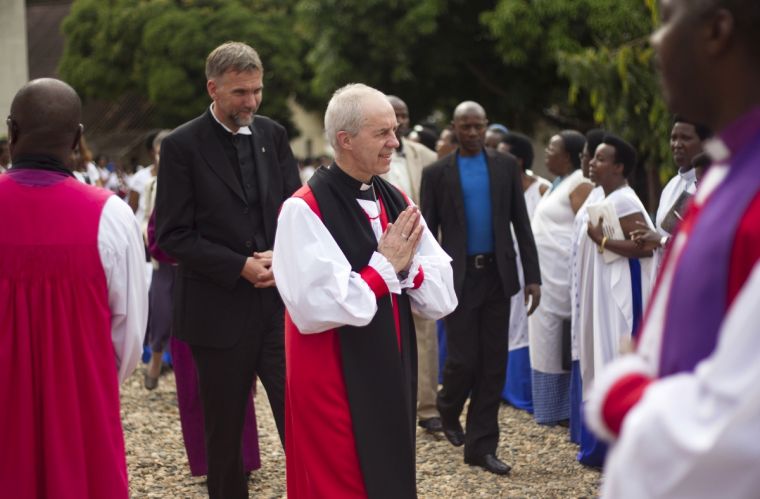Justin Welby and 'gentle' evangelism: Should you wait to be asked before sharing your faith?

Mention evangelism in the context of religious activities and suddenly everyone gets very nervous.
"You're not going to try and convert me are you?" is the fearful cry that goes up when Christians talk of growth. Surely not. With most other "goods" in life, the idea is to share and allow others to experience that good. But with religion, it seems, it's fine as long as it doesn't become too enthusiastic. Presumably the worry is that people of faith will somehow coerce the unsuspecting atheist into believing against their will.
Against this anxious backdrop, the Archbishop of Canterbury apparently told believers not to talk about their faith unless they are asked to, according to The Telegraph. The question posed to Justin Welby at an inter-faith gathering in Lambeth Palace was, what is the difference between evangelism and proselytism?
What he actually said was: "I draw the line in terms of respect for the other; in starting by listening before you speak; in terms of love that is unconditional and not conditional to one iota, to one single element on how the person responds to your own declaration of faith; and of not speaking about faith unless you are asked about faith.
"That's a shorthand but I could go on.
"I draw a pretty sharp line, it is all based around loving the person you are dealing with which means you seek their well-being and you respect their identity and their integrity."
He later added on Twitter that witnessing to Jesus is "central to discipleship".
@His_Grace @Telegraph witnessing to Jesus Christ is central to discipleship; "how", must be with gentleness and reverence, 1 Peter 3:15-16
— Justin Welby ن (@JustinWelby) May 21, 2016
This passage exhorts followers to always be prepared to answer "anyone who asks you for a reason for the hope that is in you". The author adds, "yet do it with gentleness and respect".
Welby is not actually telling believers not to talk about their faith unless they are asked, but his emphasis on gentle evangelism is characteristic of his approach.
No matter how nervous everyone else seems to be about evangelism, Welby certainly is not. Alongside the Archbishop of York, John Sentamu, he has led the biggest evangelism drive the Church has seen in decades. But all the time he has emphasised the line in 1 Peter.
In an openly evangelistic message to Christians in China, he spoke of the "day-to-day experience of living our lives in ways that reveal to those around that we trust in Jesus Christ and seek to follow him as his disciples".
In reference to the passage in 1 Peter 3 he said: "Peter was very clear that the heart of witness lay not in aggressive shouting at people or any other form of manipulation or disruption, but in lives that were lived so clearly that people would ask why the Christian lived in such a way and that the Christian would 'always be ready to give an explanation for the hope that is within you, but with gentleness and grace'."
In his message in China and his comments quoted in The Telegraph, Welby is not saying anything particularly revolutionary. He is asking Christians to evangelise but to do so in how they live their lives with humility, gentleness and respect. Most Christians do precisely that on a daily basis.
But in doing so Welby is also implicitly challenging the fear around the idea of evangelism. It is ridiculous to think anyone could be seduced into believing. In the majority of cases Christians' lives point to their faith in ways that are entirely appropriate and respectful. There are legitimate concerns about Christians who use positions of power in providing a public service to then harass people, but these are the minority.
Welby's gentle but consistent emphasis on the need for faith sharing done respectfully is helping to counter the unhelpful narrative that evangelism is the ugly side to religion. It is not and we should not begin to think so.











